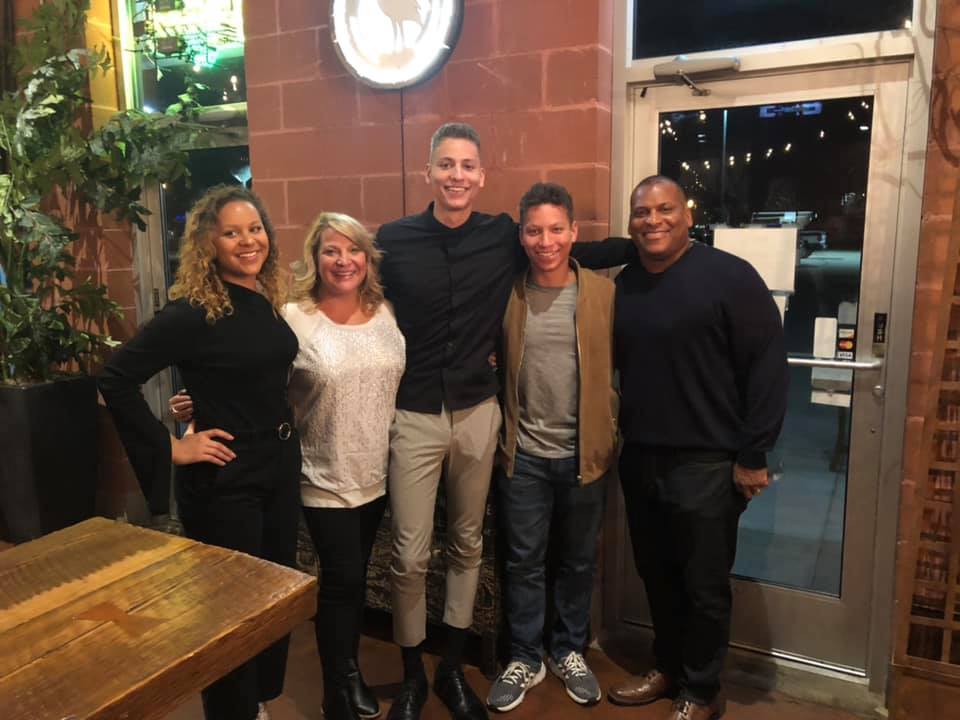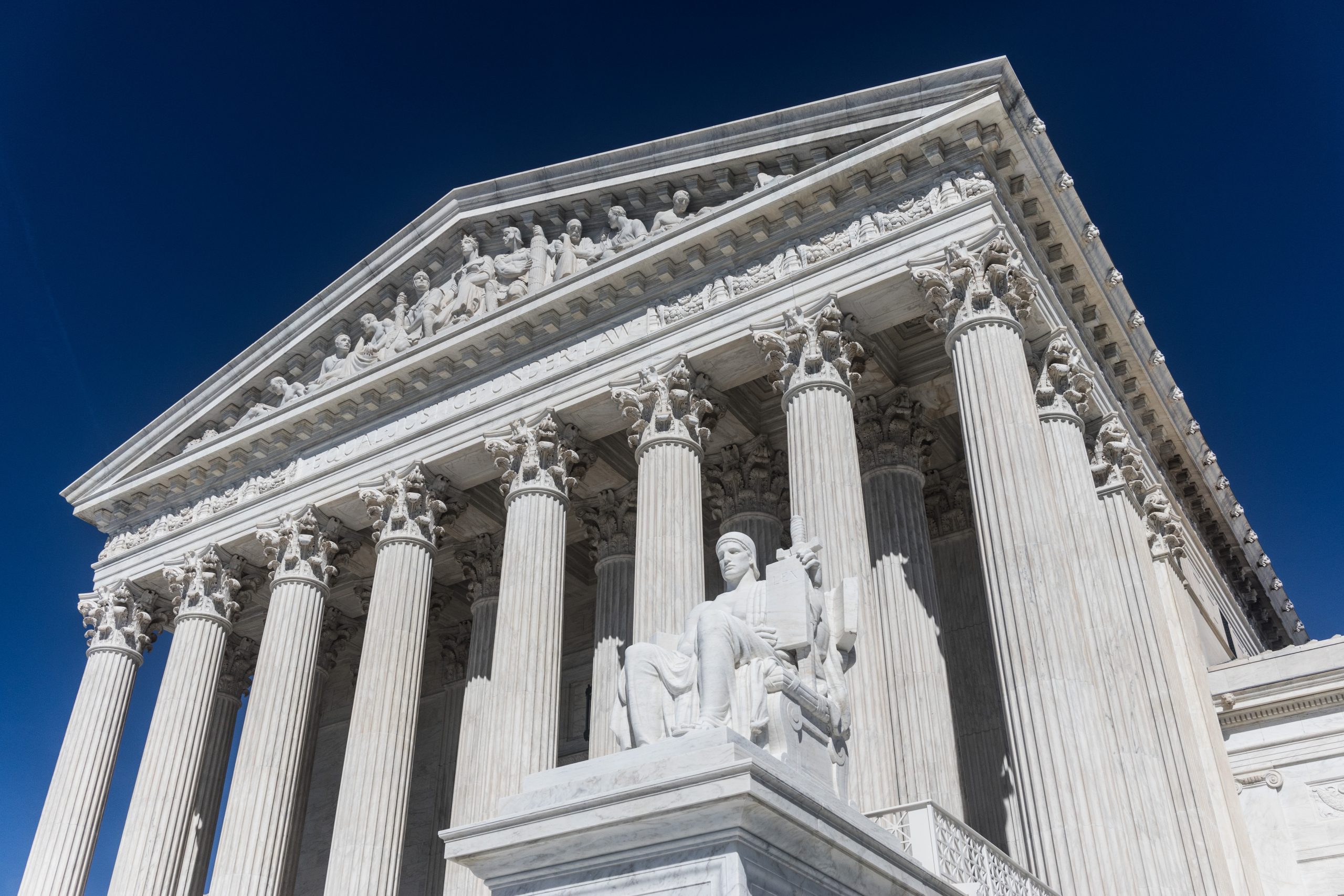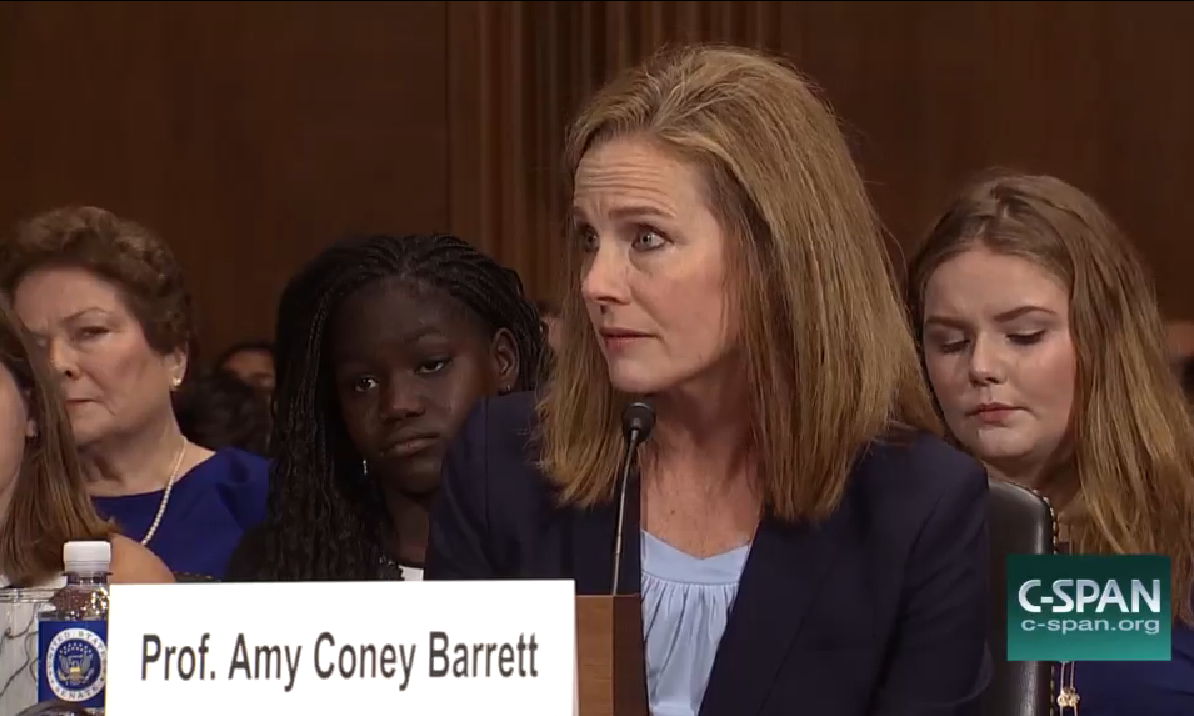Abortion rights, women of color, and LGBTQIA+ people are under attack. Pledge to join us in fighting for gender justice.
Ser Latinx y lo que Significa la Nominación de Brett Kavanaugh a la Corte Suprema Para Mí / Being Latinx & What Brett Kavanaugh’s Nomination to the Supreme Court Could Mean to Me
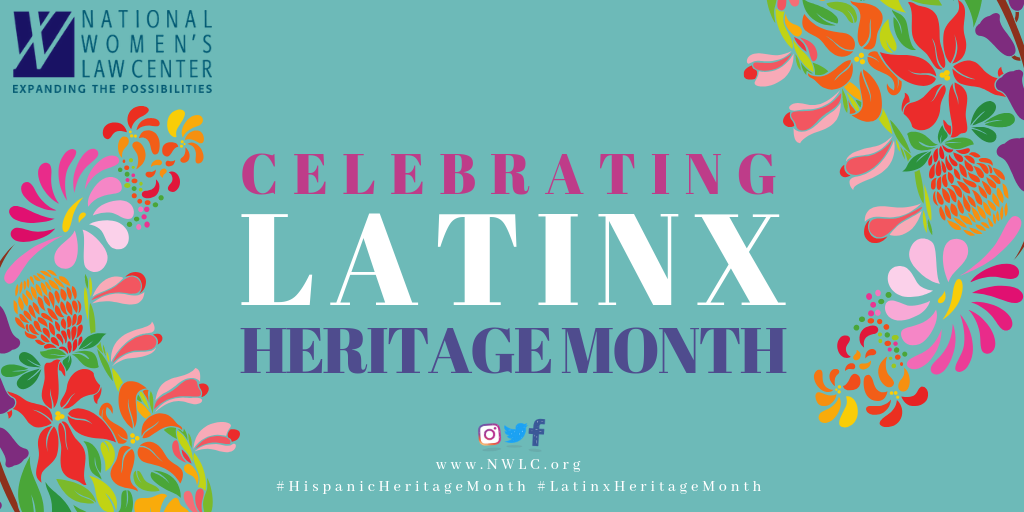
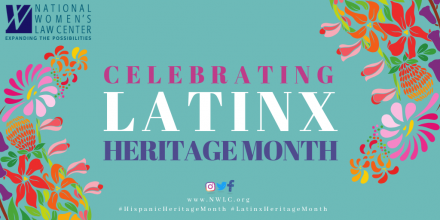 Escrito por: Kelli Garcia
Escrito por: Kelli Garcia
Traducido por: Stephanie Hernández & Diali Avila
*Scroll below for the English version*
Cuando era una niña, la gente a veces hablaba de La Migra como un tipo de Bogeyman— El Cucuy, pero real—gente en uniformes en vez de un monstruo mítico. “No te vayas muy lejos, La Migra te puede llevar.” Se decía como en broma—pero a la misma vez era una advertencia. Nuestros abuelos se pueden acordar de un tiempo atrás en donde autoridades del gobierno iban los hogares de ciudadanos y los “motivaban” a que se “auto-deportaran.” Sus abuelos se acordaban de ser forzados fuera de sus casas y retirados de sus tierras. La ciudadanía de mi padre era cuestionada cada vez que empezaba un trabajo nuevo y, como recientemente, la patrulla fronteriza acosaba y abusaba de gente joven que vivía cerca de la frontera.
Hasta el día de hoy, le tengo miedo a La Migra—me preocupa que de alguna manera me encuentre metida en una redada y perdida en el laberinto burocrático, sin poder comprobar quien soy. Tengo piel morena, un apellido mexicano. Nací en Tejas. Mi abuela parió a mi padre en su propia casa, y por esa razón, él no tenía un certificado de nacimiento, solo récord de su bautizo. Me acuerdo de los niños separados de su familia en la frontera y pienso, eso me puede pasar a mí.
Me digo a mi misma que este miedo es irracional. Soy ciudadana de los Estados Unidos, nacida de padres ciudadanos estadounidenses. Sus padres nacieron en Estados Unidos. Soy abogada. Tengo dos títulos de escuelas Ivy League. Mi esposo es un abogado. Tengo amigos que son parte del Congreso, amigos en bufete de abogados poderosos, amigos que son periodistas. Tengo privilegio.
Pero en las últimas semanas me he enfrentado a noticias con títulos como, “Los E.U. está negando pasaportes a estadounidenses a lo largo de la frontera, cuestionando su ciudadanía” y “Un Marino por 20 años y residente de San Antonio no puede obtener un pasaporte”. Esto es real. Este miedo no es irracional. Esto es lo que es ser Latinx en Estados Unidos hoy en día.
Han sido años desde que alguien me ha gritado: “¿No hablas inglés?,” o “vuelve a tu país,” llamada “mexicana” con un tono que no necesita la palabra “sucio” para dejar claro que fue un insulto intencionado, o tratar de explicarme que, cuando llaman a alguien “mojado” no quieren insultarme, después de todo hay “buenos mexicanos” y “malos mexicanos”. Pero desde las elecciones, personas que pensé que eran mis amigos me han dicho con toda la seriedad, “Me siento más segura ahora que habrá un muro para mantener a esas personas fuera.” “Esas personas”, dicen, olvidando o de alguna manera sin darse cuenta de que esas personas, esas personas de piel morena, también son mi gente.
“Estamos en la lucha por nuestras vidas,” dicen a veces mis colegas y amigos en el movimiento. Y eso es verdad, pero también estamos en una lucha por el alma de nuestro país. El Senado podría votar tan pronto como la próxima semana para confirmar a Kavanaugh. Tendrán que decidir: ¿van a confirmar a un hombre ante la Corte Suprema que ha dejado claro que se pondrá del lado de los privilegiados y poderosos antes que del resto de nosotros?
Se supone que las cortes son un lugar en donde personas pueden obtener justicia. Se supone que son un lugar donde todos nuestros derechos están protegidos. Se supone que las cortes son la última línea de defensa contra aquellos que quieren robarnos de nuestros derechos y contra aquellos que nos despojarían de nuestra ciudadanía.
Si se confirma, Brett Kavanaugh cambiara el equilibrio de la corte, empujándonos más lejos de la protección los derechos de las minorías, afectándonos por futuras generaciones. Kavanaugh ha demostrado una clara hostilidad hacia los derechos de las mujeres, las personas de color, los inmigrantes y los trabajadores con salarios bajos. Por ejemplo, en el 2017 emitió una orden que habría permitido a la Administración Trump-Pence para continuar bloqueando a una mujer inmigrante de diecisiete años, Jane Doe, para que no abortara, aunque tenía su propio medio de transporte y estaba usando servicios privados, y fondos para pagar por el aborto. Kavanaugh evidentemente demostró su desprecio hacia Jane Doe a través de su opinión y particularmente en su insistencia en llamarla “ilegal”. En otra opinión disidente, una vez más mostró su desprecio hacia los inmigrantes al argumentar que los trabajadores indocumentados o, como él los llamaba “extranjeros ilegales”, no tenían el derecho de sindicalizarse. Si su razonamiento se extiende a otros casos, podría tener el potencial de negar a los trabajadores indocumentados protecciones básicas. Recientemente, el juez ha sido acusado de abuso sexual abuso sexual contra una mujer joven cuando estaban en la preparatoria.
Brett Kavanaugh no protegerá nuestros derechos. Él ha dejado claro que no le pondrá alto a un presidente racista que intenta pisotear los derechos de las personas, que quiere deportar ciudadanos y deshacerse de la ciudadanía de personas en este país, que ha separado a los padres inmigrantes de sus propios hijos, perdiendo a esos niños en el proceso, que apoya el supremacismo blanco, y que ha declarado que las minorías no merecen de la dignidad humana.
Los Senadores deben preguntarse: ¿Qué tipo de país somos? ¿Qué tipo de país vamos a ser? Si la respuesta es: un país que respeta y protege los derechos de todas las personas, entonces deben votar no y negar la confirmación de Brett Kavanaugh ante la Corte Suprema.
Being Latinx and What Brett Kavanaugh’s Nomination to the Supreme Court Could Mean to Me
By: Kelli Garcia
When I was a child people sometimes talked about La Migra as a type of bogeyman—El Cucuy, but real—people in uniforms rather than a mythical monster. “Don’t go too far or La Migra might get you.” It was said as a kind of joke—but also not. Our grandparents could remember a time when government men came to houses and “encouraged” U.S. citizens to “self-deport.” Their grandparents remembered being forced out of their houses and off their land. My father’s citizenship was questioned every time he started a new job and, like now, border patrol harassed and abused young people living near the border, la frontera.
To this day, I fear La Migra—worry about somehow getting caught up in a raid and lost in the bureaucratic maze, unable to prove who I am. I have brown skin, a Mexican last name. I was born in Texas. My father was born at home. He didn’t have a birth certificate, only a baptismal record. I think of the children separated from their parents at the border. That could happen to me, I think.
My fear is irrational I tell myself. I am a citizen of the United States, born in the United States to parents who were both born in the United States. Their parents were born in the United States. I am a lawyer. I have two Ivy League degrees. My husband is a lawyer. I have friends who are members of Congress, friends at high-powered law firms, friends who are journalists. I have privilege.
But in the past few weeks I have been faced with headlines like, “U.S. is denying passports to Americans along the border, throwing their citizenship into question” and “A Marine for 20 years, [San Antonio] resident can’t get passport”. This is real. My fear is not irrational. This is what is it like to be Latinx in the country today.
It has been years since someone yelled at me, “Don’t you speak English?”, told me “go back your own country,” called me a “Mexican” in that tone that doesn’t need the word “dirty” to make clear that a slur was intended, or tried to explain to me that when they call someone a “wetback” they don’t mean to insult me, after all there are “good Mexicans” and “bad Mexicans.” But since the election, people who I thought were my friends have said to me in all earnestness “I feel safer now that there will be a wall to keep those people out.” “Those people,” they say, forgetting or somehow not realizing that those people, those brown skinned people, are also my people.
“We are in the fight for our lives,” my colleagues and friends in the movement sometimes say. And that is true. But we are also in a fight for the very soul of our country. The Senate could vote as early as next week on Kavanaugh’s confirmation. And they will have to decide: Are they going to confirm a man to the Supreme Court who has made clear that he will side with the privileged and powerful over the rest of us?
The courts are supposed to be a place where people can get justice. They are supposed to be a place where all of our rights are protected. They are supposed to be the last line of defense against those who would strip us of our rights, against those who would strip us of our citizenship.
If confirmed, Brett Kavanaugh would tip the balance of the court away from protecting the rights of people of color for generations to come. Kavanauh has already demonstrated clear hostility towards the rights of women, people of color, immigrants, and low wage workers. In 2017, for example, he issued an order that would have allowed the Trump-Pence Administration to continue blocking a seventeen-year-old immigrant woman, Jane Doe, from obtaining an abortion, even though she had her own transportation and was using private funds to pay for the abortion. His disdain for Jane Doe was evident throughout his opinion and particularly in his insistence on calling her “unlawful.” In another dissenting opinion, he once again showed his disdain for immigrants by arguing that undocumented workers or, as he called them “illegal aliens” did not have the right to unionize. His reasoning, if extended to other cases, could have the potential to deny undocumented workers basic protections. And now he has been accused of sexually assaulting a young woman when they were both in high school.
Brett Kavanaugh will not protect our rights. He has made clear that he will not be a check on a racist President who is trying to trample on people’s rights, who wants to deport citizens, who is trying to revoke people’s citizenship, who has separated immigrant parents from their children, sometimes losing those children in the process, who supports white supremacy, who has declared brown and black people unworthy of basic human dignity.
Senators must ask themselves: What kind of country are we? What kind of country are we going to be? If the answer is—A country that respects and protects the rights of all people then they must vote no and not confirm Brett Kavanaugh to the Supreme Court.

